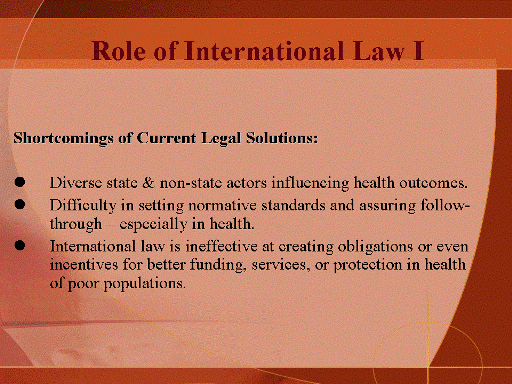If meeting basic survival
needs can truly make a difference for the world’s population, and if
this solution is preferable to other paths, then how can
international law play a constructive role? Extant legal solutions
have deep structural faults. The most glaring problem, widely
debated by scholars, is whether international legal instruments and
global institutions can effectively govern the diverse State and
non-State actors that influence health outcomes. Setting normative
standards and assuring follow-through are particular problems in
health—more so than in other fields of international law. But even
this governance debate does not address the hardest problem in
global health. International law seems ineffective in creating
incentives, let alone binding obligations, to provide funding,
services, or protection for the world’s poorest people. But this is
exactly what is required to solve the most intractable problems in
global health.
